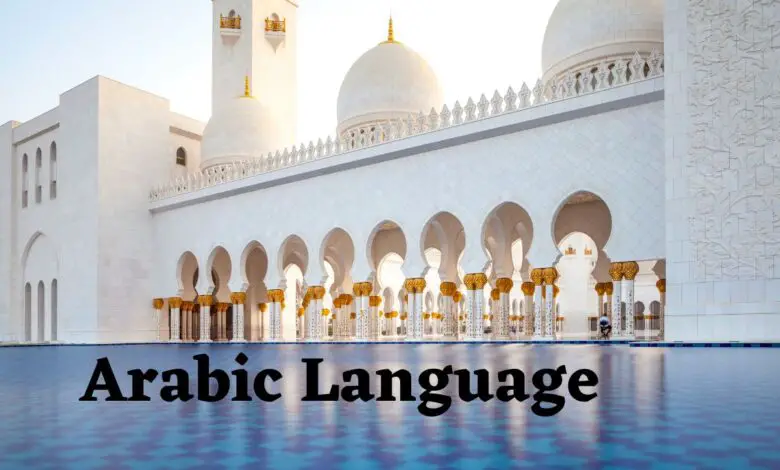
Introduction:
Arabic, a language with a history spanning thousands of years, stands as one of the most influential and captivating languages in the world. Spoken by millions across the Middle East and North Africa, Arabic holds a unique position as the language of the Quran, the holy book of Islam, and has left an indelible mark on literature, science, and art throughout history. In this article, we will explore the origins, structure, and cultural significance of the Arabic language, shedding light on its lasting impact on the global stage.
Historical Origins:
The Arabic language traces its roots to the Arabian Peninsula, where it emerged over two millennia ago. The early history of Arabic is closely tied to the Bedouin tribes, who relied on it as a means of communication in trade and daily interactions. As these tribes interacted with other civilizations through trade routes and conquests, the Arabic language spread beyond its original borders.
One significant turning point in the history of Arabic came with the revelation of the Quran to the Prophet Muhammad in the 7th century. The Quran, written in classical Arabic, revolutionized the language, elevating it to the status of a divine tongue. As Islam spread, so did the influence of the Arabic language, touching the lives of people across vast territories.
Structure and Complexity:
Arabic is renowned for its complexity and beauty. It is a Semitic language, sharing a common ancestry with Hebrew, Amharic, and several other languages. One of the distinctive features of Arabic is its unique writing system, written from right to left, which adds to its allure and mystique. The script has evolved over the centuries, with several calligraphic styles developed, each adding a touch of artistry to the written word.
Arabic also exhibits a fascinating grammatical structure with intricate rules and patterns. It is a highly inflected language, with changes in the form of words indicating gender, number, and case. Moreover, the root-based nature of Arabic enables the formation of numerous words from a single root, enriching the language with depth and nuance.
Cultural Significance:
Beyond its linguistic complexity, Arabic has profoundly influenced various aspects of culture and knowledge. As the language of the Quran, it holds immense religious significance to Muslims worldwide. It serves as a unifying factor for Muslims, regardless of their cultural or geographical backgrounds.
Arabic literature stands as a treasure trove of poetic and prose works, showcasing the rich creativity and intellectual depth of Arab scholars. From ancient poetry to modern novels, Arabic literature has provided a platform for expressing emotions, thoughts, and philosophical ideas, leaving a lasting impact on world literature.
Science and Scholarship:
The Arabic language has played a pivotal role in the preservation and transmission of knowledge during the Middle Ages. While Europe was engulfed in the Dark Ages, the Islamic world thrived with a vibrant intellectual culture, where scholars translated and preserved the works of ancient Greek, Roman, and Persian thinkers. These translations, often done into Arabic, became the foundation for the European Renaissance and the revival of classical knowledge.
Fields like astronomy, mathematics, medicine, and chemistry owe a significant debt to Arab scholars. Renowned thinkers like Al-Khwarizmi, Ibn Sina (Avicenna), Al-Razi (Rhazes), and Ibn Rushd (Averroes) made pioneering contributions to their respective fields. Their works not only advanced science and scholarship but also enriched the Arabic language with technical terms that are still in use today.
Arabic in Modern Times:
In the contemporary world, Arabic continues to hold a prominent position. It is one of the six official languages of the United Nations, showcasing its global importance in diplomacy and international affairs. Arabic media, literature, and art continue to thrive, and its cultural influence extends beyond Arab-speaking nations.
However, like many languages, Arabic faces challenges in the modern era. The rapid pace of globalization and technological advancements has led to the dominance of English as the lingua franca of business and the internet. Consequently, Arabic-speaking communities grapple with the need to preserve their language and cultural heritage amidst the influence of global trends.
Conclusion:
The Arabic language stands as a symbol of the profound cultural and intellectual heritage of the Arab world. Its origins, complexity, and historical significance make it a language worth celebrating and preserving. From its early beginnings in the Arabian Peninsula to its contemporary presence on the global stage, Arabic continues to captivate and inspire people around the world. As we move forward, let us recognize the magnificence of the Arabic language and work together to ensure its enduring legacy for generations to come.
What is the Arabic language?
Arabic is a Semitic language belonging to the Afroasiatic language family. It is primarily spoken in the Middle East and North Africa, and it serves as the liturgical language of Islam.
2. How many people speak Arabic worldwide?
Approximately 300 million people speak Arabic as their native language, making it one of the most widely spoken languages globally.
3. Is Arabic a difficult language to learn?
The difficulty of learning Arabic varies depending on an individual’s native language and language learning experience. Arabic’s complex grammar, different script (right-to-left), and diverse dialects can present challenges to learners.
4. What are the different types of Arabic?
Arabic has two main forms: Classical Arabic (Fusha) and Modern Standard Arabic (MSA). Classical Arabic is the language of the Quran and classical literature, while MSA is used in formal settings, media, and education. Additionally, there are numerous regional dialects spoken across the Arab world.
5. Can I communicate with Arabs using Modern Standard Arabic?
Yes, Modern Standard Arabic serves as a common language for communication across Arab countries and is widely understood in formal and written contexts. However, in everyday conversations, native speakers often use their respective regional dialects.
6. How important is Arabic in Islamic culture?
Arabic is of paramount importance in Islamic culture as it is the language of the Quran, the holy book of Islam. It holds deep religious significance and is used in prayers, religious rituals, and Islamic scholarship.
7. Are there any benefits to learning Arabic?
Yes, learning Arabic can be highly advantageous. It provides access to rich cultural heritage, opportunities in the Middle East job market, and improved communication with Arabic-speaking communities.
8. Which Arabic dialect should I learn?
The choice of dialect depends on your goals and the region you intend to communicate with. Egyptian Arabic is widely understood due to Egypt’s large population, while Levantine Arabic (spoken in Lebanon, Jordan, Syria, and Palestine) is also popular in media and business.
9. Can I learn Arabic script without learning the language?
Yes, it is possible to learn to read and write Arabic script without fully learning the language. There are resources available that focus solely on teaching the script.
10. Is Arabic script used for languages other than Arabic?
Yes, the Arabic script is used for several other languages, including Urdu, Persian (Farsi), Pashto, and Kurdish, among others.





